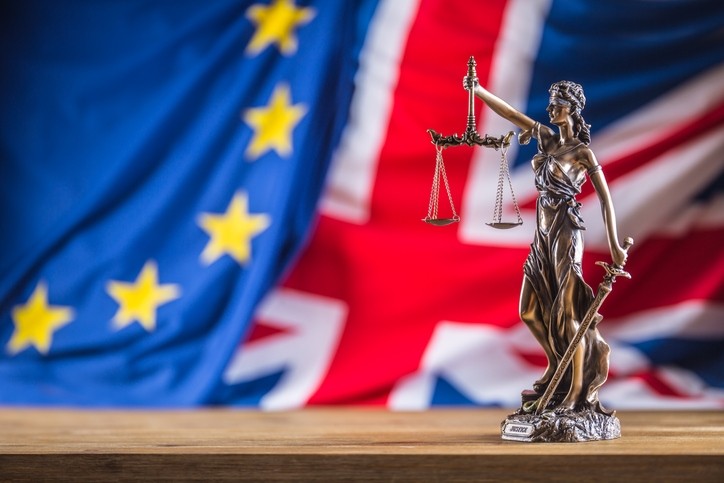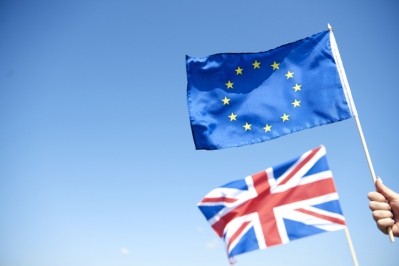Brexit beauty: The right Responsible Person can help business ‘survive and thrive’, says expert

The transition period for Brexit is due to finish on December 31, 2020. Beauty and personal care businesses therefore need to be prepared for changes and compliance with UK laws that will come into effect on January 1, 2021.
CosmeticsDesign-Europe caught up with regulatory expert Dr Mojgan Moddaresi, managing director of Personal Care Regulatory, to discuss what industry ought to prioritize in the final weeks of 2020.
“There are two important factors that brands should consider while planning their Brexit strategy,” Moddaresi said – choosing the right partner as the Responsible Person (RP) if a company doesn’t have separate UK and EU entities and conducting supply chain due diligence.
Securing a ‘good quality’ Responsible Person (RP) for both markets
Moddaresi said it was vital EU and UK beauty businesses chose the right partner as their Responsible Persons (RPs) in the UK and EU – a new requirement post-Brexit, unless separate entities were registered in each market. And she said it was worth spending time considering who to partner with.
What is a Responsible Person?
A Responsible Person is a legal entity or a natural person who will take responsibility for any legal or compliance matter after the products are placed on the market. This responsibility includes defending brands for many issues such as: claims on pack, inspection by authorities, tracking regulatory changes, post-market surveillance of the product, providing right advice on packaging waste regulations, and relevant supply chain issues.
“The Responsible Person is not just an address; it is a regulatory partner who can help brands to survive and thrive,” she said.
“…The base stone for each brand success is assuring products’ safety and post-market surveillance, of good quality. A good post-market surveillance strategy will provide assurance for consumers and may impact brand loyalty.”
When selecting an RP partner, therefore, Moddaresi said it was important beauty businesses looked to secure an RP that had “a great understanding” on what it took to provide post-market surveillance; an RP that had a friendly and trustworthy approach; but also one where the point of contact was directly with an expert.
Securing RPs could be “time consuming”, she said, and often impacted the supply chain – reprinting of labels to update new RP addresses on all primary and secondary packaging, for example – and so it was critical industry prioritised this now, particularly given there were less than 35 working days left before the Brexit transition period ended.
Moddaresi said there were indications many smaller beauty players had left organisation of new RPs last minute, according to a poll of Personal Care Regulatory’s own clients conducted in August. For those who had not yet commenced preparations, she suggested a sharp focus on “sorting out your supply chain strategy” and then appointing a capable regulatory partner to look after compliance.
Brexit beauty priorities – ‘supply chain due diligence’
Beauty brands also had to consider distribution and supply chain in both markets post-Brexit, Moddaresi said.
“If there is no trade agreement, brands should sort out new custom procedures, supply chain organisation, changing roles in their supply chain, thinking of new tariffs and duties, as well as new logistics. Brands importing to the UK should also apply for a GB Economic Operator Registration and Identification (EORI) number.”
![According to The British Beauty Council there had been plenty of 'uncertainty' in the run up to Brexit and businesses still faced difficulties in navigating rule changes [Getty Images]](https://www.cosmeticsdesign-europe.com/var/wrbm_gb_food_pharma/storage/images/_aliases/wrbm_medium/publications/cosmetics/cosmeticsdesign-europe.com/article/2022/02/02/british-beauty-council-trade-hub-for-brexit-confusion-and-international-growth-insight/13205924-1-eng-GB/British-Beauty-Council-trade-hub-for-Brexit-confusion-and-international-growth-insight.jpg)
![Whilst the foundational EU Cosmetics Regulation transitioned nicely across the pond into UK legislation, chemical safety assessment now looks slightly different due to a new working group and UK REACH [Getty Images]](https://www.cosmeticsdesign-europe.com/var/wrbm_gb_food_pharma/storage/images/_aliases/wrbm_medium/publications/cosmetics/cosmeticsdesign-europe.com/article/2021/11/16/uk-chemical-safety-legislation-for-cosmetics-post-brexit-includes-sag-cs-group-and-uk-reach/13018918-1-eng-GB/UK-chemical-safety-legislation-for-cosmetics-post-Brexit-includes-SAG-CS-group-and-UK-REACH.jpg)








![Chinese study highlights mental health challenges in atopic dermatitis, emphasising holistic patient care. [Getty Images]](https://www.cosmeticsdesign-europe.com/var/wrbm_gb_food_pharma/storage/images/_aliases/wrbm_tiny/publications/cosmetics/cosmeticsdesign-asia.com/headlines/formulation-science/chinese-research-linking-atopic-dermatitis-to-mental-health-underscores-need-for-holistic-care/17040623-1-eng-GB/Chinese-research-linking-atopic-dermatitis-to-mental-health-underscores-need-for-holistic-care.jpg)








